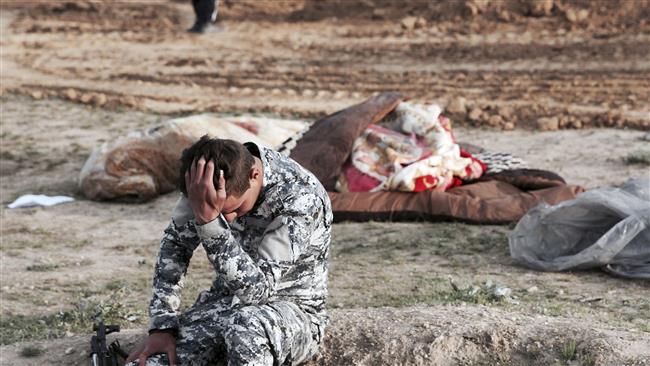
RNA - “So far, we handed 550 bodies to their families, 200 of them are now subject for DNA testing. 150 victims were discovered two weeks ago and we are expecting to find more. I would say the total number of victims will exceed 1,000,” said Moeen al-Kadhimi, a senior commander of Iraq’s Popular Mobilization Units (PMU), also known as Hashd al-Sha’abi in Arabic.
On June 12, 2014, Daesh terrorists killed about 1,700 Iraqi air force cadets after kidnapping them from Speicher camp, a former US base, situated on the outskirts of the provincial capital Tikrit, the hometown of Iraq’s former dictator Saddam Hussein. There were reportedly about 4,000 unarmed cadets in the camp when it came under attack by the militants.
Shortly afterward, the attackers took the victims to the complex of presidential palaces and killed them. The terrorists also threw some of the bodies into the river. The massacre was filmed by Daesh and broadcast on social media, showing the hostages as they were mostly lined up in various locations and slaughtered.
The horrific mass killing incident sparked outrage across the Arab country and partially fueled the mobilization of the PMU.
Tikrit was recaptured from Daesh in March 2015. During clean-up operations in the northern part of the city, Iraqi forces found the location of the 2014 carnage.
An investigation committee later revealed that 57 members of Saddam Hussein’s Ba’ath Party had aided the Daesh terrorists in the massacre. On August 21, 2016, Iraqi judiciary officials hanged 36 men convicted of involvement in the carnage.
Iraq has discovered dozens of mass graves in areas that have been retaken from Daesh.
847/940